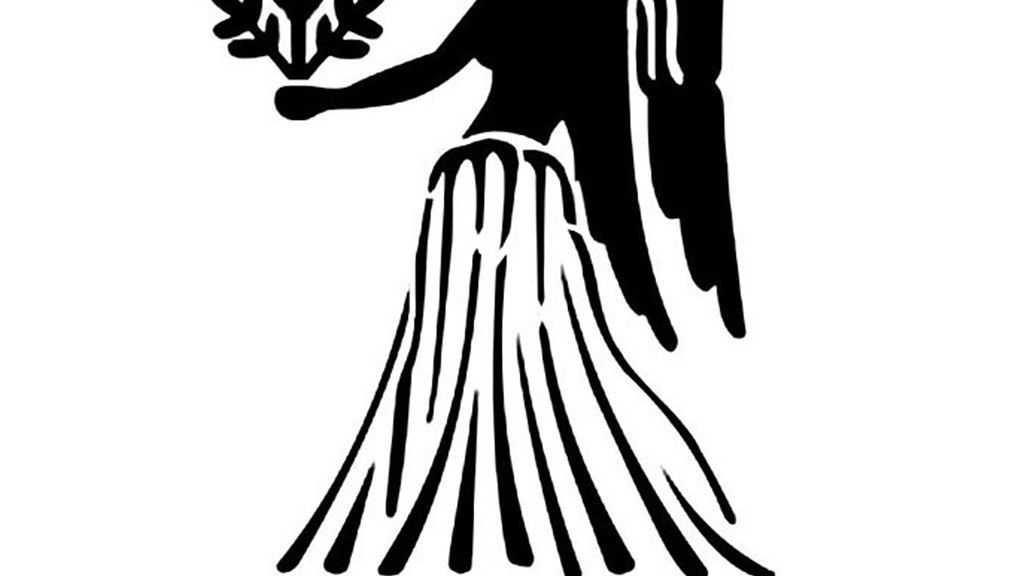Kim Kardashian’s SKIMS Receives Worst Possible Ethics Score

SKIMS, the shapewear brand owned by Kim Kardashian, earned widespread criticism this year. The 2024 Remake Fashion Accountability Report gave it the lowest possible score of 0/150, tying it with notorious offenders like SHEIN. The brand that markets itself as empowering women suddenly found itself lumped together with fast fashion giants known for exploiting workers. The report exposed SKIMS’ lack of transparency in disclosing labour practices and environmental impact. Despite its high-profile image of inclusivity, the brand has been accused of exploiting garment workers in countries like Bangladesh and Vietnam, where workers are reportedly paid below a living wage. What makes this scandal particularly stinging is the contrast between Kardashian’s public persona of female empowerment and the reality of how her company treats vulnerable workers. Despite Kardashian’s statements about her commitment to inclusivity and empowerment, her silence on labour rights drew backlash from feminist and sustainability advocates alike.
Balenciaga’s Child Campaign Disaster That Shook the Fashion World

The luxury fashion house published a campaign titled “Balenciaga Gift Shop” on Nov. 16 in support of its Spring/Summer 2023 collection. The first “gift collection” campaign, shot by award-winning National Geographic photographer Gabriele Galimberti, featured photos of children holding handbags that looked like teddy bears wearing leather harnesses and spiked collars with wine glasses near in some of the shots. The backlash was swift and devastating. The hashtags #burnbalenciaga and #cancelbalenciaga quickly gained traction on TikTok, accumulating more than 300 million views, with influencers publishing videos showcasing their commitment to the online boycott, tearing up Balenciaga bags or clothing as a symbolic act of protest. Balenciaga also lost 100,000 followers on Instagram after the crisis. In addition, the brand fell out of the Lyst Index’s top 10 brands and witnessed a significant 4% decline in sales during Kering’s fourth quarter of 2022. The controversy grew even worse when eagle-eyed social media users discovered another campaign featuring court documents about child pornography cases.
Nike’s Supply Chain Scandal Reveals Persistent Labor Violations

Nike once again made headlines in 2024 for unethical practices in its supply chain. Investigations revealed cases of wage theft at the Hong Seng Knitting Factory in Thailand, which produces clothing for the brand. Migrant workers reported being denied overtime pay and subjected to dangerous working conditions. This isn’t Nike’s first rodeo with labor controversies, but it shows how even established brands with corporate responsibility programs continue to struggle with oversight. Advocacy groups like the Clean Clothes Campaign accused Nike of exploiting vulnerable workers and prioritizing profits over ethical labor practices. Despite public backlash, Nike’s response was criticized as insufficient, earning the brand a spot on 2024’s naughty list. The scandal highlights a persistent problem in the fashion industry where brands outsource production but fail to adequately monitor working conditions at their partner factories.
Victoria’s Secret’s Failed Comeback Attempt Backfires Spectacularly

Victoria’s Secret’s much-hyped 2024 Fashion Show was supposed to mark a new era for the brand, but it ended up fuelling more controversy. The lingerie giant had been trying to rebrand itself after years of criticism over its lack of body diversity and outdated marketing approaches that many considered sexist and exclusionary. The brand’s attempts to modernize fell flat with consumers who saw through what many perceived as performative changes rather than genuine transformation. Critics argued that simply putting different body types on the runway wasn’t enough to erase decades of promoting unrealistic beauty standards. The fashion show that was meant to signal a fresh start instead reminded everyone why the brand had become problematic in the first place.
SHEIN’s Environmental Disaster Reaches New Heights

The company nearly doubled its emissions in 2023, making it the biggest polluter in the industry. In the 12 years since Shein was founded, it has become known for its uniquely prolific manufacturing, which reportedly generated over $30 billion of revenue for the company in 2023. Although estimates vary, a new Shein design may take as little as 10 days to become a garment, and up to 10,000 items are added to the site each day. The company reportedly offers as many as 600,000 items for sale at any given time with an average price tag of roughly $10. This breakneck speed comes at an enormous environmental cost that’s becoming impossible to ignore. It’s estimated that the fashion industry is the second-largest consumer of water worldwide, with around 20% of global industrial water pollution attributed to textile dyeing and treatment alone. Not to mention, the use of cheaper, more polluting materials like polyester. The company’s use of AI to predict trends and speed up production has only made the problem worse, creating a vicious cycle of overconsumption and waste.
Temu and SHEIN’s Labor Practices Receive Rock-Bottom Ethics Ratings

The report, which surveys and scores 120 of the world’s largest fashion brands, revealed that the average score across brands was 31 out of 100. Shein scored 20, while Temu received a rock-bottom score of 0. Temu’s score reflects its lack of transparency, which is a growing standard in the fashion industry. documentary, Inside The Shein Machine, sent undercover cameras to film factory workers who were forced to pull 17-hour shifts to make hundreds of garments a day. In one factory, they made a daily base salary of $20, which would then be docked by $14 if any garments had mistakes. And a recent investigation found that factory workers at Shein suppliers regularly work 75-hour weeks, over a year after the company pledged to improve working conditions within its supply chain. These working conditions are more reminiscent of 19th-century sweatshops than modern manufacturing facilities.
Dove’s Plastic Pollution Hypocrisy Sparks Activist Protests

Dove, the star of Unilever’s portfolio, faced significant backlash in 2024 despite its ongoing “Real Beauty” campaign. Greenpeace staged an eye-catching protest in London outside Unilever’s headquarters to highlight the company’s production of 6.4 billion single-use plastic sachets annually. The organization accused Unilever of being one of the largest contributors to plastic pollution in Southeast Asia, where much of the plastic waste from Dove products ends up in the oceans. Sustainable beauty advocate Venetia La Manna called out Dove for its performative campaigns that push self-love while damaging the planet. In an Instagram post, La Manna said, “they’ve been fuelling environmental disaster in the Global South that disproportionately harms the young women and girls they claim to champion”. The irony is particularly sharp considering Dove’s messaging about empowering women while simultaneously contributing to environmental problems that disproportionately affect women in developing countries.
Marks & Spencer’s Textile Colonialism Exposed

In 2024, Marks & Spencer faced backlash for its role in Ghana’s textile waste crisis. According to The OR Foundation, second-hand clothing from M&S and other Western retailers was dumped in Ghana under the guise of charitable donations. Activists called this practice “textile colonialism,” as it undermines local businesses and contributes to significant environmental pollution. Vast amounts of unsellable clothes clog Ghana’s landfills and waterways, exacerbating both economic and environmental crises in the region. Activists demanded accountability from retailers like Marks & Spencer for their role in this exploitative cycle. This practice exposes the dark side of what consumers often view as charitable clothing donations, revealing how developed countries export their waste problems to vulnerable nations under the pretense of helping.
Fast Fashion Giants Exploit Customs Loophole Worth Billions

The secret to these Chinese powerhouses’ success lies in one very important customs loophole: A key element to their supply chain model includes “exploiting” a de minimis ruling that states that any import up to $800 per person is duty free. Effectively, they bypass “red tape” and import duties, putting local companies at a disadvantage. China-founded e-commerce sites Temu and Shein say they plan to raise prices for U.S. customers starting next week. This loophole has allowed companies like SHEIN and Temu to flood the U.S. market with cheap goods while American retailers struggle to compete against unfairly subsidized competition. The practice has drawn criticism from both lawmakers and domestic manufacturers who argue it creates an uneven playing field. An executive order imposes tariffs on small-value shipments from China that were previously exempt from duties.
Zara’s Controversial Campaign Compared to War Imagery

Zara’s recent ad campaign is being compared to the Israel-Hamas war. But it’s just the latest fashion scandal. Here are some of the most memorable controversial fashion moments. Inditex, which owns Zara, told Reuters that the campaign was rotated out as part of the brand’s normal marketing procedure, not because of the backlash. It also said that the shoot was conceived in July and that the photos were taken in September, before the Israel-Hamas war. The timing of the campaign’s release during heightened global tensions made the imagery particularly problematic for viewers who saw disturbing parallels to real-world violence. Social media users quickly connected the visuals to scenes of destruction and suffering, leading to widespread condemnation and calls for boycotts across multiple countries.
Design Theft Scandals Plague Fast Fashion Brands

One of the most frequent criticisms of Shein and Temu involves allegations of stealing designs from small businesses and independent artists. Numerous reports and lawsuits suggest that these companies copy designs without permission, selling them at a fraction of the price. Small designers and artists have found their original work replicated almost exactly on these platforms, often within days of posting their creations online. This practice not only violates intellectual property rights but also undermines the livelihood of creative professionals who lack the resources to fight large corporations in court. The speed at which designs are copied and mass-produced has created an environment where original creators struggle to compete with knockoffs of their own work. These cases highlight the broader issue of how fast fashion companies prioritize speed and low costs over ethical business practices and respect for creative property rights.
Tesla’s Political Backlash Impacts European Fashion Partnerships

In January 2025, Tesla experienced a sizeable decrease in European sales, with figures dropping to 9,945 vehicles from the previous year’s 18,161, according to data from the European Automobile Manufacturers’ Association (ACEA). That shocking 45% tumble resulted in Tesla’s market share falling (from 2.8% to 1.8%). It doesn’t require a genius leap of imagination to connect this downturn to CEO Elon Musk’s belligerent involvement in European politics, including his vocal support for far-right populist parties – including Germany’s AfD. While Tesla isn’t primarily a fashion brand, the company’s controversies have affected its partnerships with fashion retailers and luxury brands that previously collaborated on limited collections. While the evidence that a boycott is afoot seems conclusive, it’s not the only signal there’s a consumer backlash against Tesla. Tesla’s decline is in diametric opposition to the zeitgeist. This demonstrates how political stances can ripple through various industries, including fashion collaborations and branded merchandise partnerships.
The Rise of Consumer Activism Against Unethical Brands

Shoppers today are looking beyond what’s on the shelf and paying attention to how it got there. If a brand claims to be sustainable but engages in unfair labour practices or has questionable leadership, the backlash can be swift and unforgiving. The rise of social media amplifies these conversations, and one misstep can lead to a viral #Boycott[YourBrandHere] in no time. After all, a boycott isn’t just bad press. It’s a loud statement that people expect better. Modern consumers have more tools than ever to research brands, share information, and organize collective action against companies that violate their values. Social media platforms have democratized the ability to hold brands accountable, turning individual grievances into global movements overnight. This shift has forced fashion companies to be more transparent about their practices and more responsive to public concerns than ever before.
The fashion industry’s controversies in 2023-2025 reveal a critical turning point where brands can no longer hide behind glossy marketing campaigns while engaging in unethical practices. From SKIMS scoring zero on ethics reports to Balenciaga’s child campaign disaster, these scandals show that consumers are demanding authentic responsibility, not just performative activism. The rise of social media has given consumers unprecedented power to expose and punish brands that fail to meet basic ethical standards, creating a new reality where reputation can be destroyed in hours and rebuilding trust takes years.







